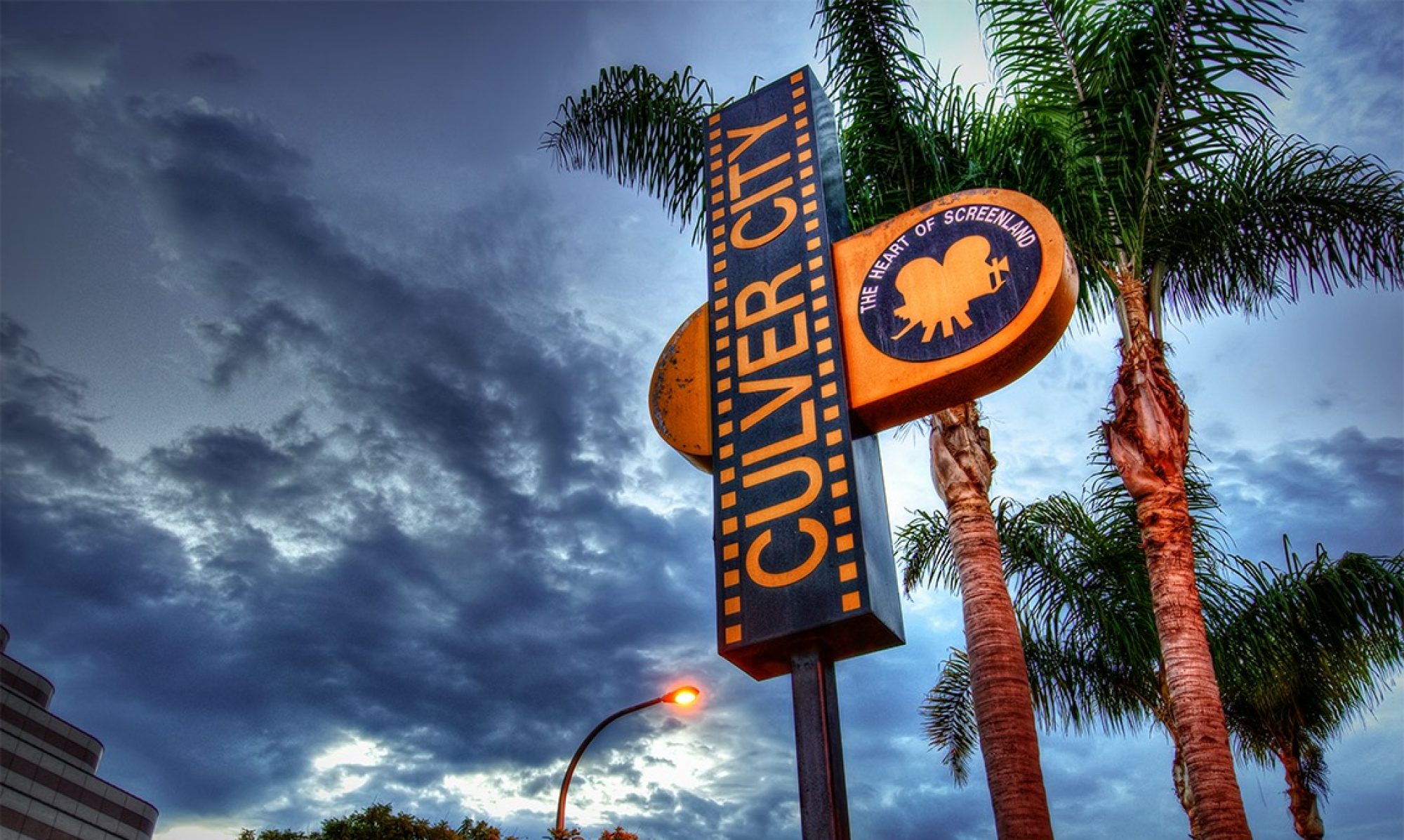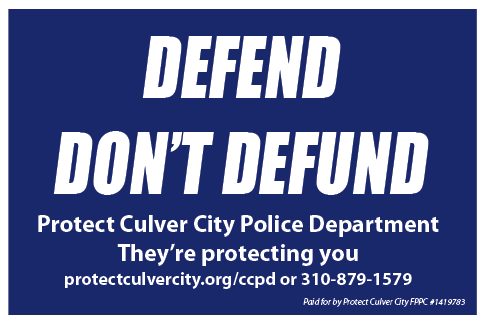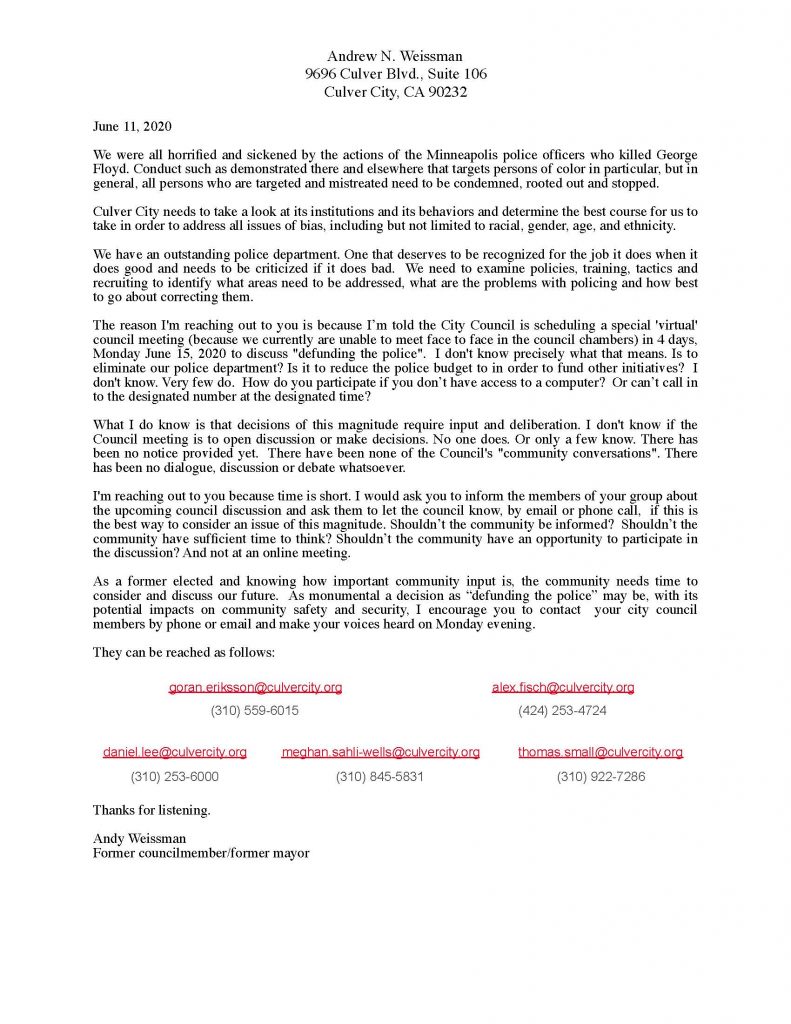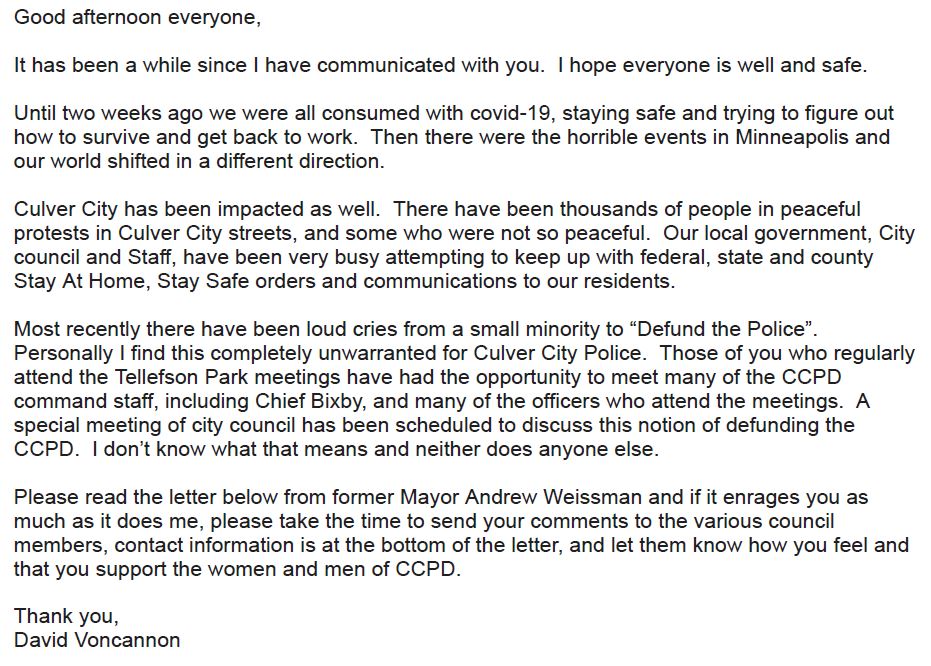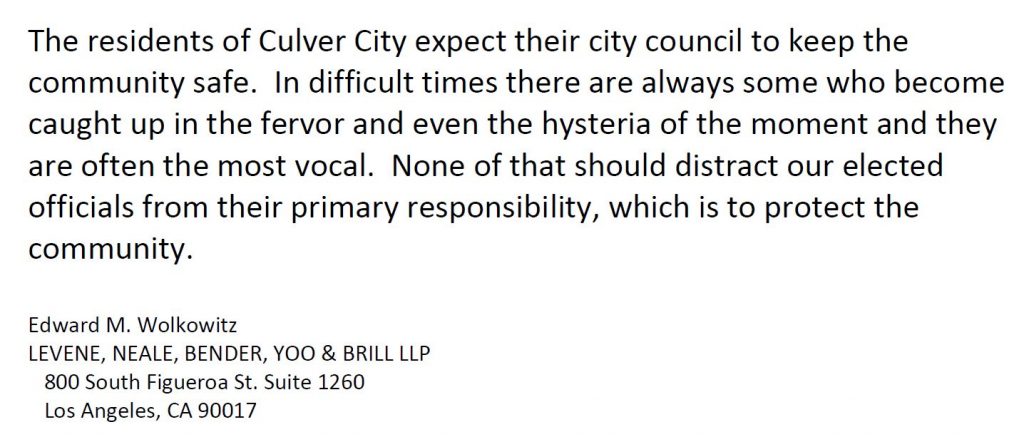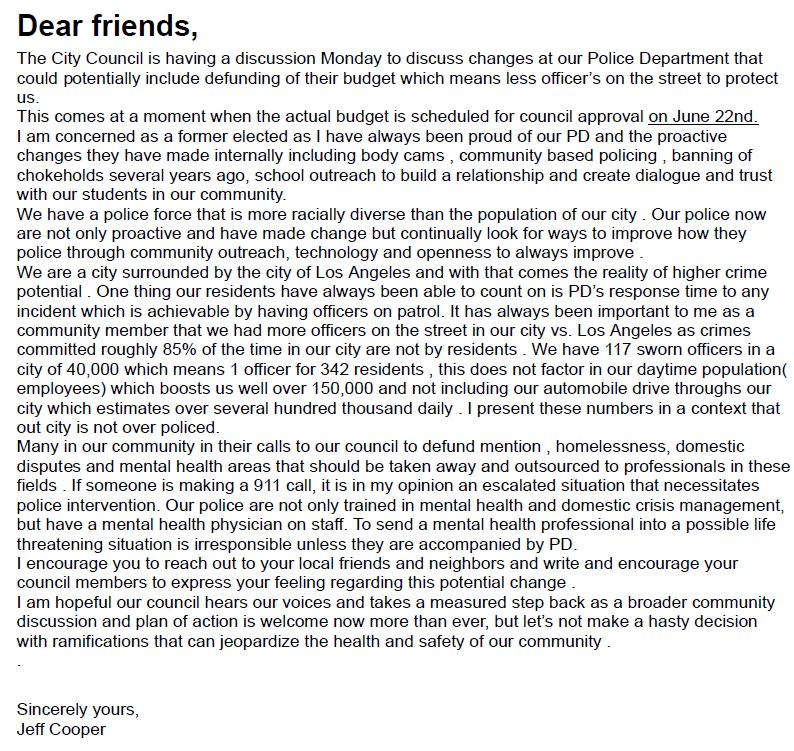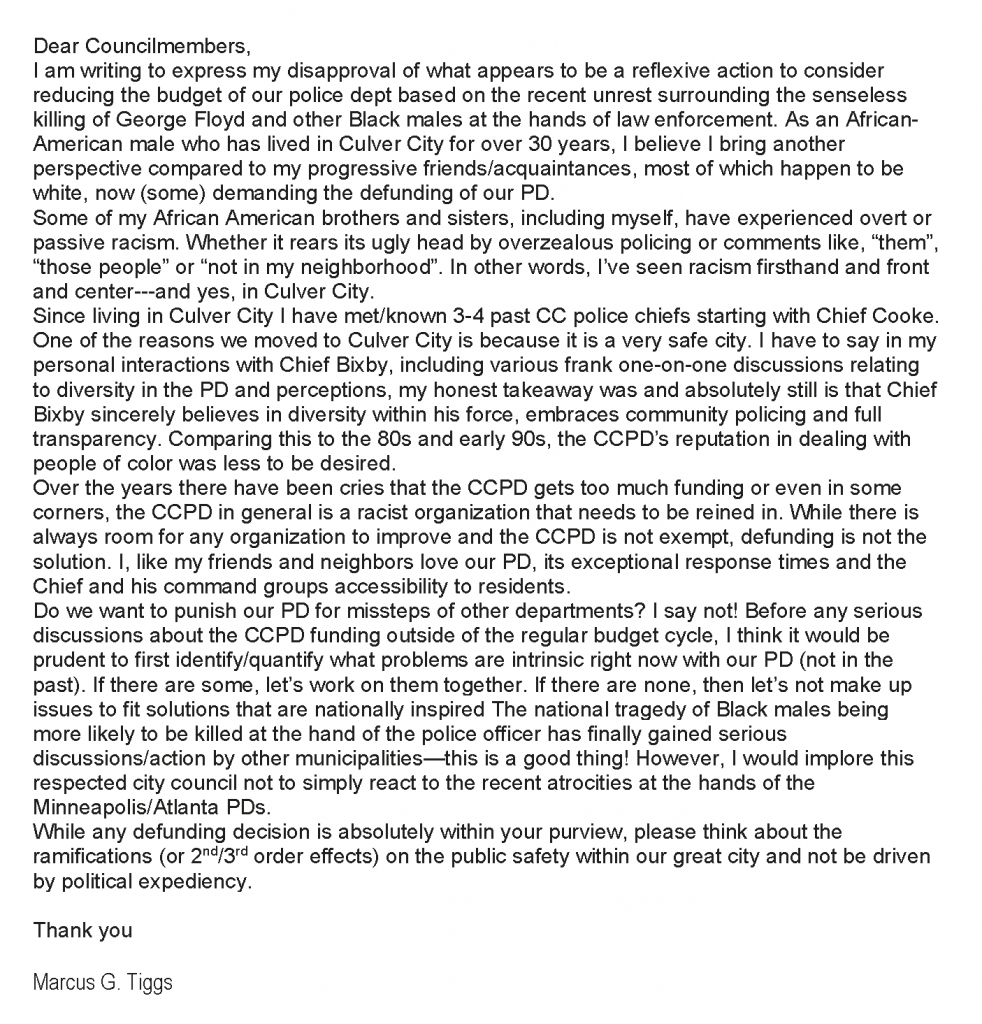We are approaching the final month of our six allotted
months to get 2800 qualified signatures for our ballot initiative to require
voter approval for rent control. This
past month was by far the most active.
We hired on a paid signature service to do the heavy lifting, while our
volunteers were cancelling weekend plans so they could all pitch in.
Our proposal has been simple: we want to put rent control,
recently passed by council, up to a vote.
We don’t feel that current council has been up front about their plans
for rent control. Passing something this
consequential should have a proper discussion among the voters of Culver
City. Our initiative, if passed, would
treat rent control just like a tax increase.
If city council wants it, they need to get voter approval for it. If it passes a popular vote, we can live with
that.
When you talk to thousands of residents (and non-residents)
about such a nuanced topic, you get a whole spectrum of responses. We’d like to address some of these.
First, the very two words, “rent control.” We’ve come to appreciate just how much
mythology is built around the term. Many
people’s eyes light up, just when they hear those two words. Like it’s some magical panacea that will
preserve a time when rents were reasonable in this city. Many favor it as well as opposing
development, betraying a lack of concern for basic supply and demand, or how
this city is changing.
It doesn’t help that council, in pushing for rent control,
has indulged such a fantastic outlook.
They’ve cited “rent burdened households” – people who pay more than a
third of their income on rent. As if
rent control, or anything short of state funded housing, would actually change
this. Or that they present a cartoonish
view of landlords sitting on infinite profits, and that whatever happens they
can shoulder that burden.
We approach people with a simple phrase “require voter
approval for rent control” and often people just hear two words: “rent
control.” We are then confronted with a
whole array of misconceptions. How many
realized our city even passed rent control?
Are we for or against rent control?
The combination of this mythology, and lack of awareness of what city
council is up to, alone justifies our mission.
We want a city that knows what it’s getting into – not one that gets led
by the nose.
For the most part, our petition is hard to say no to. What’s wrong with more democracy? What’s wrong with having a vote and an actual conversation on it? Most people, even ones who are for rent control, don’t have a problem signing it. That is the strength of our petition.
Of course, occasionally we “step on a bomb” – to use the Minesweeper terminology. Generally it’s someone who is politically tied to council. They ask baited questions, make ad hominems, and throw the occasional accusation that we are the ones being misleading. We’ve heard accusations that our paid gatherers have used terms like “for rent control”, “protect renters’ rights”, “protect 3% rental cap”.
We took all these accusations seriously and followed up as
much as we could. Our experience is none
of these accusations add up. We know
where all our people are out on the field at any time. The accusations either mismatched the
canvasser on the field, or the time they were in that area. More so, they reflect people who made up a
story. The talking points above are also
ones we would never use, even if we were interested in misleading people. Those are the terms of rent control
activists, and we reject that language entirely. Or they’re second order hearsay, with no
means of following up.
Of course, transparency and honesty are an artform in a campaign like this. It’s always someone’s first day. Even if they have the script, they are not familiar with people’s reaction to it. In our early days, some of us used the phrase “put rent control on the ballot” – but we realized even that could be improved, considering the number of people who didn’t even realize it was enacted already. So we quickly adjusted it.
Now, when we tell people “require voter approval for rent
control” – and we stress to use the word “require” in our opening phrase – it
leads to a whole series of questions.
What happens if it gets on the ballot?
What happens to rent control if it passes? Won’t this end rent control? Our own mayor has misled people on the dais
by saying exactly that – that it’s some subterfuge to get rid of rent
control.
It is true that if our ballot initiative passes, and council does nothing else, their rent control administration is rendered null and unenforceable. But council can easily acknowledge our petition and launch a counter-initiative. They can put their own rent control administration on the ballot. They would only need to vote for it with a simple majority by August, and we’ll all get to vote on it in November alongside our own initiative. If theirs passes, their rent control remains whether our initiative passes or not. No need for 2800 signatures and a costly campaign.
For council to say that our initiative is a sneaky attempt to stop their rent control is an implied refusal to acknowledge us, those who signed our initiative, or the city at large. It is an implicit acknowledgment that they refuse to hear our voices, that they refuse to let us decide the fate of our own city. This is where our petition has force. If they refuse to listen to the voters of Culver City, and we’re loud enough, they don’t get to keep their rent control.
And this is where their only reasonable argument against our petition comes in. Their supporters feel they got elected, this gives them unlimited power to do what they want without being questioned or curtailed.
That’s when we point out our petition is about so much more
than rent control – it’s about curtailing a council that has gone rogue. We see their hubris and contempt for
residents on so many issues: Allowing
transients to set up permanent residence on our streets and in our parks. Building a homeless shelter on park land
right in the middle of town. Allowing
minors to vote or sit on boards and commissions. Scrapping mayoral rotation and even entire
commissions established by city charter.
They didn’t run on any of these things.
When we stop by in the next couple weeks, to ask you if
you’d like you to sign our petition, keep this in mind. This isn’t about rent control. It’s taking back control of your own city
before it’s too late to protect the city you grew to love.
